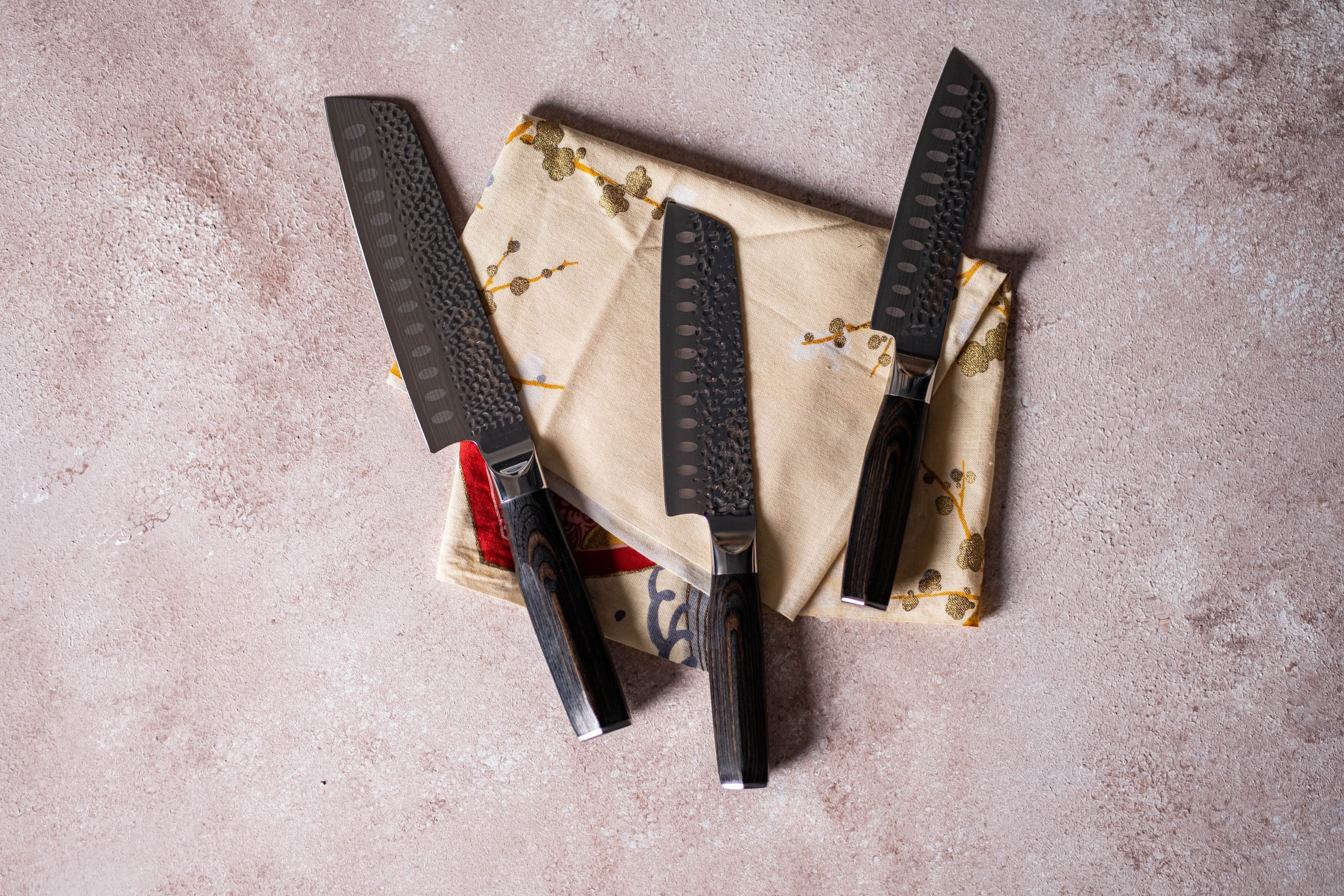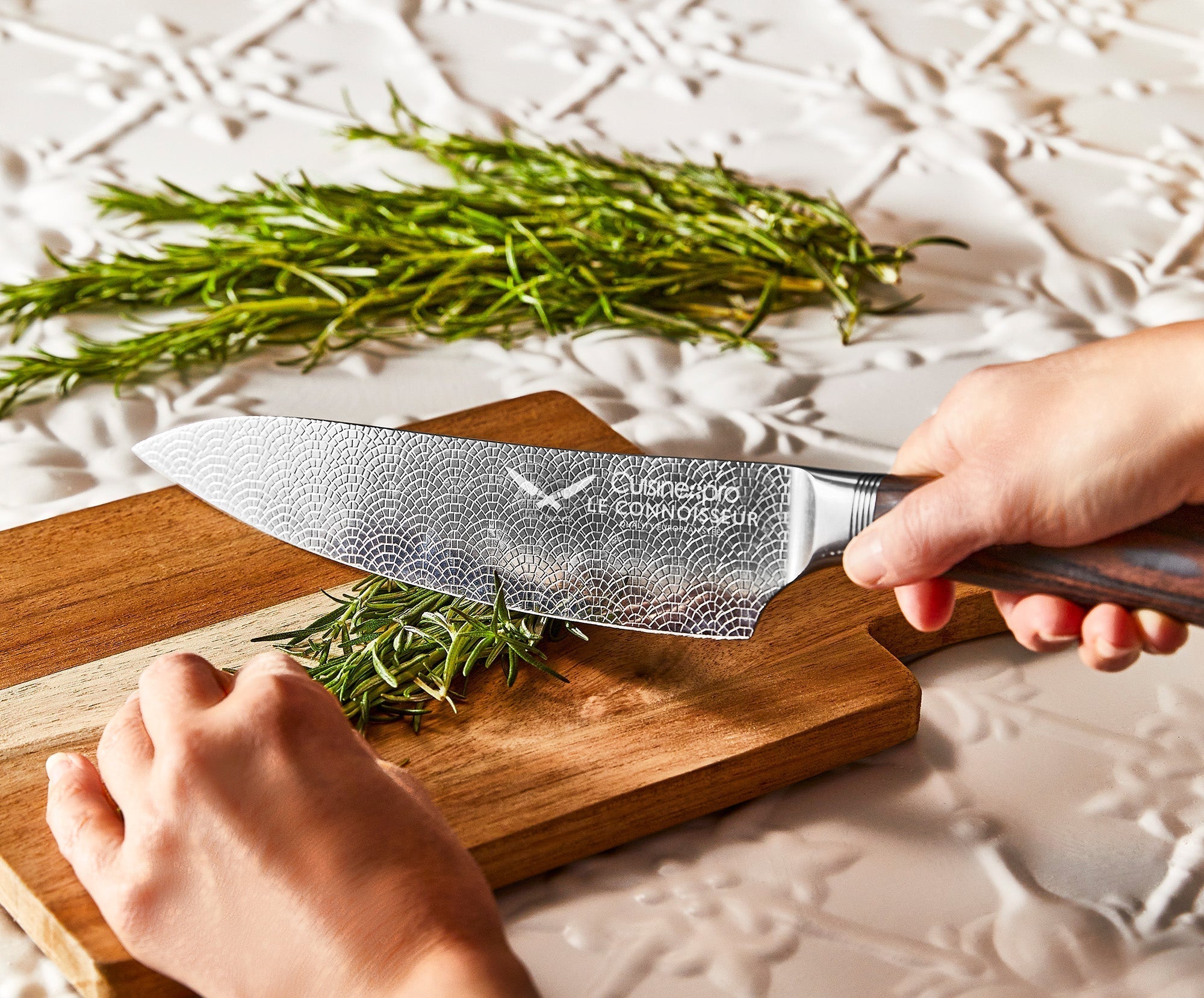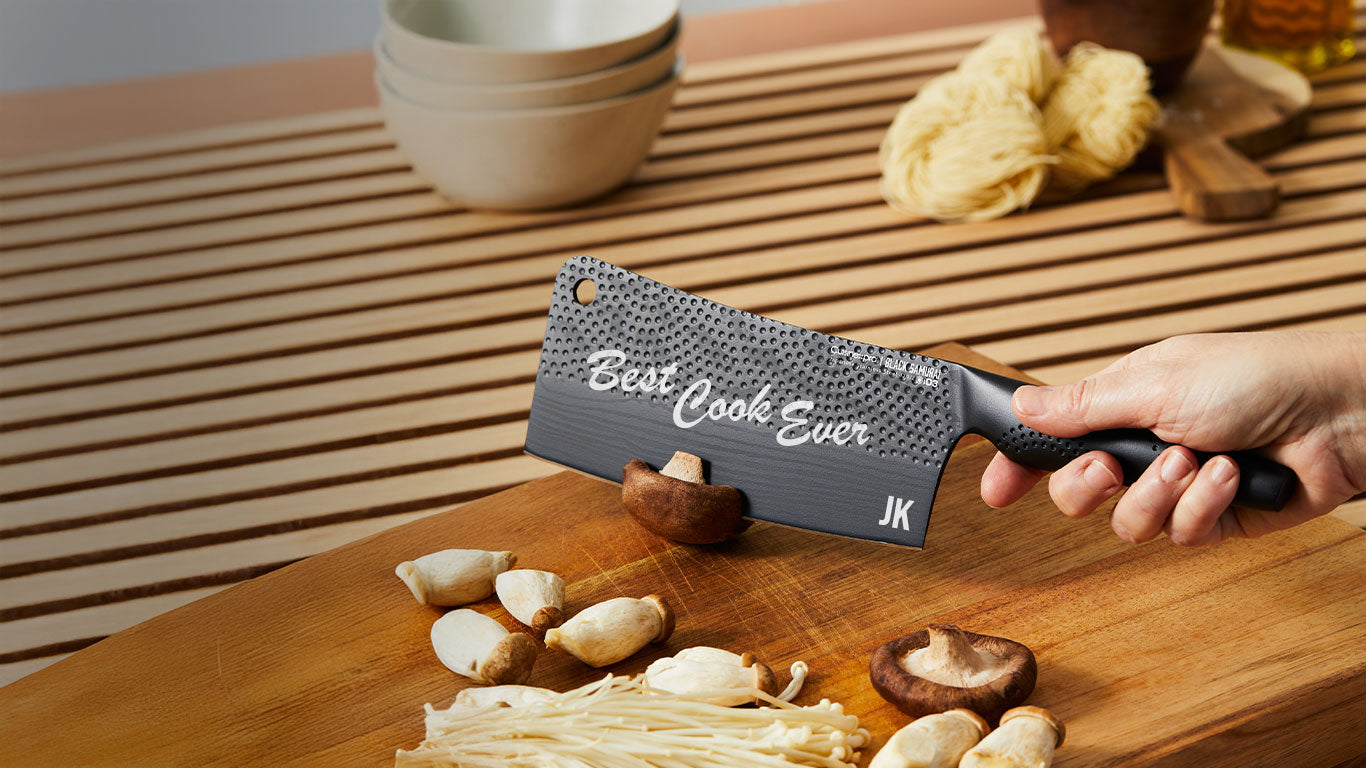Japanese vs. German Steel Knives: Which is Sharp, Durable and Who to Buy.
THE CUSTOM CHEF™ . November 14, 2025

When a blade slices through the skin of a tomato without bruising it — no sawing, no hesitation — that’s not luck. That's the steel. Majority of individuals will analyze a knife according to its appearance or the way it is held in the hands. Ok, that is understandable, design and comfort are important. The truth is the truth, which is sharpness, balance, and longevity, however, the truth of what you can see, which is steel itself. And in case with steel, there are two traditions that rule the world of cuisines: Japanese and German. Both are constructed out of centuries of craftsmanship, both with a radically different definition of what constitutes the ideal blade.
At THE CUSTOM CHEF, we believe your tools should incorporate both. Since any cook has a right to choices that neither neglect accuracy nor strength. The Real reason why Steel Type is important. The core of kitchen knife construction is in the steel—it regulates the retention of edges and resistance to corrosion, the weight and the feel. Japanese steel is hardened, precise and has edges so sharp that it can cut hair. German steel is known for its heft, durability and the capability of receiving a beating every day. As soon as you know what each style has to offer to the table you will know what one should be in your kitchen.

Japanese Steel Knives: When Precision is in the Matter
The Japanese steel knives are the racecars of the kitchen; smooth, nimble, performance-crafted. Traditionally, the swordmakers of Japan intended their blades to cut through with grace, not force. The construction of these modern kitchen knives is still guided by that philosophy. Our Japanese steel knives are made using premium grade Japanese Stainless Steel 420J2 which is then ice-hardened and tempered to approximately 53 HRC to provide sharpness and strength. The double-bevel blades are tapered to a 15-20° edge to achieve the most precise cutting edge, and the blades are usually constructed with a partial tang or hollowed handle to allow feather-light control. It is what makes the Japanese steel ideal in paper-thin vegetables, sashimi or anything that needs delicacy.
What You'll Love
- Razor-thin flank to fine and extreme slicing
- The best edge holding and reduction of drag
- Lightweight feel which provides more control
- Perfect with sushi, fine preparation and delicate work
Keep in Mind
- Washing with hands alone--the foe of dishwashers
- It is not intended to be used on bones or frozen foods
German Steel Knives: Power, Balance and Power in Everyday
If Japanese steel knives are sports cars, German steel knives are the off-road trucks, solid, dependable, and everything. They are engineered for durability and versatility—ready to handle anything the kitchen throws at you. German steel, e.g. Stainless Steel 1.4116 has a high chromium content, which provides stain and rust-resistance. The German steel knives from THE CUSTOM CHEF™ are all fully forged and constructed with a full-tang—the steel goes all the way through the handle—to provide the greatest balance. They have a slightly lower hardness of approximately 55 HRC and hence, are simpler to maintain and reduce chipping tendency. It will make you feel confident whenever you cut a chicken or dice root vegetables.
Why You'll Love Them
- Durable, multipurpose everyday blades
- Very good rust and corrosion resistance
- The heavier weight provide stability and comfortable control
- Best for meats, dense produce, and overall preparation
Keep in Mind
- A little heavier than the Japanese knives
- Milder edge implies greater frequency of honing
So... Which One's Better?
Honestly, neither. It is a comparison of ballet to boxing; one needs skill but of a different kind. Go Japanese in case you want sharpness to the point and adore the art of fine cuts. Go German when you need something robust, versatile and suited to daily cooking.
At THE CUSTOM CHEF™ we carry knives that will be a tribute to both heritages; the spirit of the Japanese craft work with the foundation of the German engineering. Since a great knife is not a mere tool, but an accomplice in all your meals.

Looking After Your Knives (Even the Best Knives need Love)
A good knife is an extension of your hand and will persevere with the right care. It could be Japanese or German steel, but the few simple habits will help your blades to be working like new.
For Japanese Steel
- Wipe dry and wash hands
- Cutting boards should be soft (wood or plastic)
- Frequent honing between sharpenings will keep your blade’s sharp edge
For German Steel
- Handwash and dry-always
- Sharpen at least once per month
- Store on a magnetic strip or in a block in order to prevent dulling
The Final Slice
The decision between the Japanese and German steel is not which one is the best. It is about what seems natural in your hand like the knife that is moving, maintains your beats and makes what you are planning to cook something to look forward to. At THE CUSTOM CHEF™ we think that a knife must be like part of you: sharp, balanced and made to stay sharp, chop, slice, and serve every Sunday dinner you will ever eat.
Related Articles
Discover All >



